
The people of Palestine have suffered from multiple oppressions for many years. Their homeland was occupied. They lost many of their youth. Their intellectuals were exiled or killed. Their children experienced war and explosions. Women experienced the loss of their . . .
Read more ›
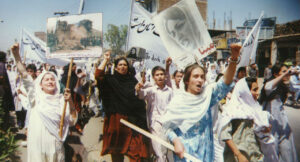
Sultani discusses women’s struggle in Afghanistan, historically and against the Taliban regime today.
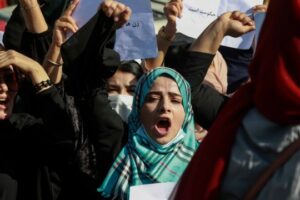
The Taliban’s takeover of power after the United States’ brutal twenty-year imperialist occupation is a catastrophe for women not only in Afghanistan but throughout the world.
An Interview with a representative of RAWA inside Afghanistan

An Interview with a representative of RAWA inside Afghanistan

How should anti-imperialists relate to the coming to power of the misogynist Taliban regime in Afghanistan?

The defeat of the U.S. and the seizure of power by the Taliban mark a real turning point. This reveals both imperialism and fundamentalism as obstacles to human emancipation.
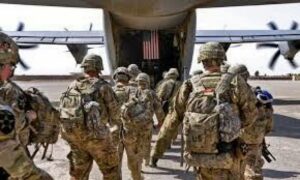
For the family members of the victims, the 9/11 attacks were a tragedy, but for the Bush administration and the U.S. ruling class, they were a golden opportunity.
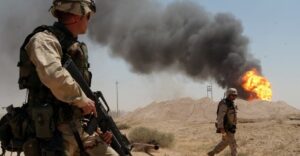
The only thing “lite” about American empire turned out to be a dogged unwillingness to accept any culpability in using power to try and remake the world, instead insisting that the exercise of violence could be innocent as long as the right people were doing it.
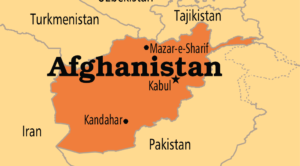
The Afghan government’s fate is but the most recent in a long list of cases of puppet entities created by a foreign occupation that collapse when that occupation ends.

In this brief Q&A, RAWA explains the unfolding situation on the ground as they see it.
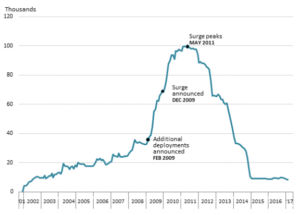
The U.S.-Afghanistan War, which has lasted almost twenty years, has cost the United States 2,300 soldiers’ lives and two trillion dollars, while more than 100,000 Afghanis have been killed.
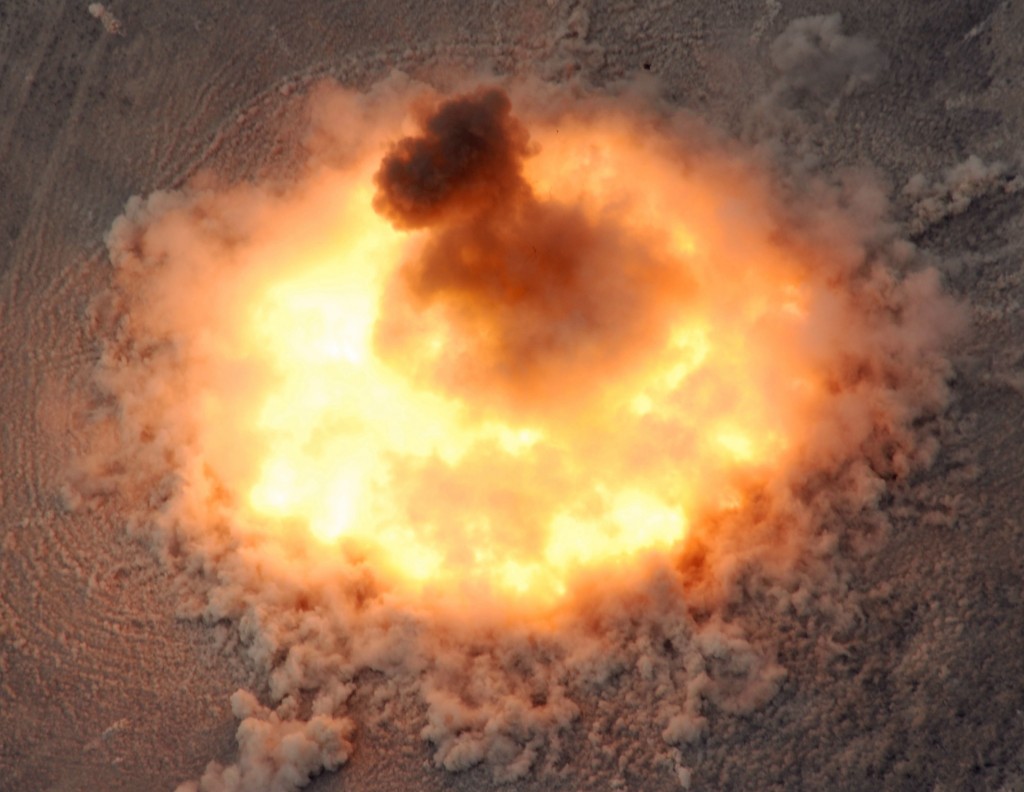 The GBU-43/B Massive Ordnance Air Blast (MOAB) or “Mother of All Bombs” was dropped in Afghanistan at a time of great international tension. Sarin gas had filled Syrian hospitals with civilians, threatening to draw Russia, the United States, and their allies into direct war. U.S. warships retaliated by striking one of Assad’s air bases while Donald Trump shared dessert with China’s President Xi Jinping. Hot on the heels of their meeting, Trump (erroneously) declared that another set of warships were en route to intimidate North Korea and its allies. Alarming rates of Syrian and Iraqi civilian causalities from coalition airstrikes were dominating headlines and before the dust had settled, the largest non-nuclear bomb in the U.S.’s mighty arsenal incinerated an ISIS encampment in eastern Afghanistan.
The GBU-43/B Massive Ordnance Air Blast (MOAB) or “Mother of All Bombs” was dropped in Afghanistan at a time of great international tension. Sarin gas had filled Syrian hospitals with civilians, threatening to draw Russia, the United States, and their allies into direct war. U.S. warships retaliated by striking one of Assad’s air bases while Donald Trump shared dessert with China’s President Xi Jinping. Hot on the heels of their meeting, Trump (erroneously) declared that another set of warships were en route to intimidate North Korea and its allies. Alarming rates of Syrian and Iraqi civilian causalities from coalition airstrikes were dominating headlines and before the dust had settled, the largest non-nuclear bomb in the U.S.’s mighty arsenal incinerated an ISIS encampment in eastern Afghanistan.

Writer and labor organizer, Sara Jaffri, and left-wing political worker and the Punjab Deputy General Secretary of the Awami Workers Party, Alia Amirali talk organizing, feminism and class in Pakistan.
The U.S. in Central Asia After Afghanistan
"As we reassure our partners that our relationships and engagement in Afghanistan will continue after the military transition in 2014, we should underscore that we have long-term strategic interests in the broader region… As the United States enters a new phase of engagement in Afghanistan, we must lay the foundation for a long-term strategy that sustains our security gains and protects U.S. interests…" —US Senator John Kerry, Chair of Senate Foreign Relations Committee, December, 2011.
review

I admire Medea Benjamin, co-founder of the activist group CODE PINK, which has staged anti-war protests and promoted victims’ rights all over the world. Her recently published book, Drone Warfare: Killing by Remote Control, focuses specifically on the relatively new phenomenon in military history of weaponized unmanned aerial vehicles or UAVs, the most common of which is the Predator drone. Having conducted a thorough—and dangerous—fact-finding mission to learn how U.S.
Obama’s decision to radically escalate the wars he was ostensibly elected to terminate is a measure of U.S. imperialism's desperation. It’s not just that our erstwhile peace candidate and future Nobel peace laureate is withdrawing exhausted U.S. troops from the frying pan of Iraq only to transfer them into the fire of Afghanistan, although that itself was an act of desperation. Many of these “volunteer” soldiers and reservists, shattered after several devastating tours of duty in Iraq, are being forced to remain in the service years beyond their contracts.
Since George Bush launched Operation Enduring Freedom in October 2001 — the unjust, illegal, and unnecessary attack on Afghanistan — there have been constant US and NATO strikes on Afghan civilians, along with constant denials that such strikes have taken place.
Kathryn Bigelow, the director of The Hurt Locker, claims that many men in Iraq and Afghanistan are addicted to war. If this is true, could it have something to do with the fact that GIs today do not face the endless bombardment from airplanes, field artillery, and tanks that World War II soldiers did?
I served in the 88th Infantry Division in Italy and I never met anyone so addicted. Had we met someone like that we would have considered him “Section 8,” that is, seriously disturbed.
Does that mean that many gung-ho GIs now serving in Iraq and Afghanistan are Section 8?
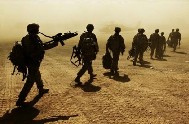
THIS MAY BE A TURNING POINT for the expanding U.S./NATO wars in Afghanistan and Pakistan, a time when speaking out clearly and unambiguously against war can make a crucial difference. Today we see signs all too reminiscent of the step-by-step deepening of the U.S. commitment to the war in Vietnam in the 1960s. In response, we declare ourselves firmly against military escalation in the region and for the withdrawal of all U.S. and NATO forces from Afghanistan and Pakistan now. We also call for an end to drone attacks in both countries.
In his speech justifying his escalation of the war in Afghanistan, President Obama reminded us why the US was fighting there in the first place. After 9-11, he recalled, the United Nations Security Council "endorsed the use of all necessary steps to respond to the 9/11 attacks." And then, "only after the Taliban refused to turn over Osama bin Laden," did the United States send its troops into Afghanistan. This account is doubly wrong.
The President and Congress are reviewing U.S. policy on the wars in Afghanistan and Pakistan. This is a critical moment. This may be a turning point for the expanding U.S. wars in Afghanistan and Pakistan, a time when speaking out clearly and unambiguously against war can make a crucial difference. We urge you to sign the Campaign for Peace and Democracy emergency statement calling for an end to military intervention in both countries. The statement declares us firmly against military escalation in the region and for the withdrawal of all U.S.











 The GBU-43/B Massive Ordnance Air Blast (MOAB) or “Mother of All Bombs” was dropped in Afghanistan at a time of great international tension. Sarin gas had filled Syrian hospitals with civilians, threatening to draw Russia, the United States, and their allies into direct war. U.S. warships retaliated by striking one of Assad’s air bases while Donald Trump shared dessert with China’s President Xi Jinping. Hot on the heels of their meeting, Trump (
The GBU-43/B Massive Ordnance Air Blast (MOAB) or “Mother of All Bombs” was dropped in Afghanistan at a time of great international tension. Sarin gas had filled Syrian hospitals with civilians, threatening to draw Russia, the United States, and their allies into direct war. U.S. warships retaliated by striking one of Assad’s air bases while Donald Trump shared dessert with China’s President Xi Jinping. Hot on the heels of their meeting, Trump (


